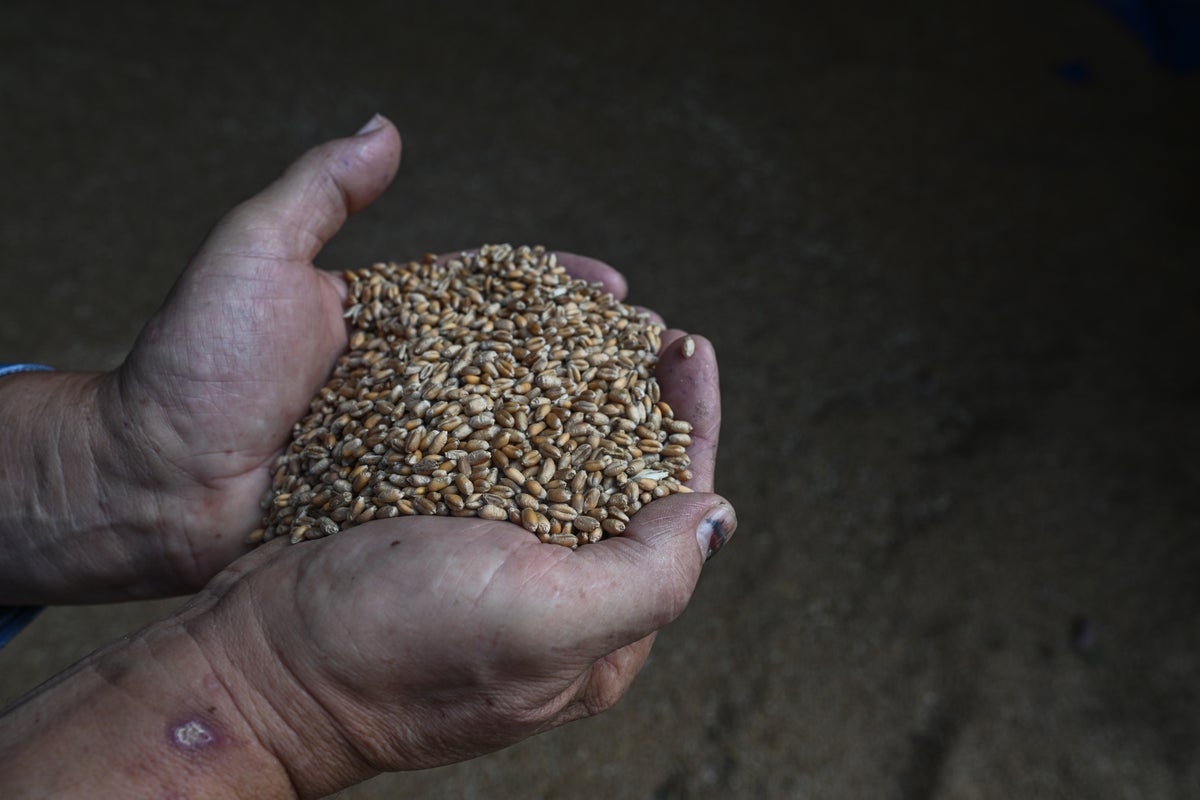
Ukraine may not be able to meet domestic and export demand for wheat in the years to come if Russia’s attacks on its export routes and facilities continue, the UN World Food Programme (WFP) has warned.
“If attacks on food infrastructure and the blockage of sea export routes continue, it will dramatically impact the agricultural production outlook over years to come, and may, in a worst-case scenario, lead to wheat production being unable to meet domestic and export demand,” said the WFP’s Ukraine director Matthew Hollingworth on Tuesday.
Since mid-July this year, there have been 31 documented attacks on Ukraine’s grain production and export facilities, according to an upcoming report by the UN Human Rights Office (OHCHR), said Mr Hollingworth.
Of these, “28 of these attacks were in Odesa oblast alone”. The province has critical Black Sea and the Danube River terminals essential for global trade, the top official told the UN Security Council (UNSC).
Countering the charges, Russia’s UN envoy Vassily Nebenzia told the UNSC that Moscow only targets military infrastructure and not civilian facilities – a claim that has been questioned by Kyiv, its allies and independent experts monitoring Russia’s full-scale invasion.
Before the war, Ukraine comprised nine per cent of global wheat exports, 15 per cent of maize and 44 per cent of sunflower oil, said Mr Hollingworth.
The UN has blamed Russia’s invasion for sparking a worsening global food crisis that has trickled on to a domino effect on Asian and African nations reeling after the Covid-19 pandemic.
Russia was actively preparing to steal grain supplies and starve the Ukrainian population of food for months before Vladimir Putin ordered last year’s invasion, according to new evidence compiled by human rights experts.
When Russian tanks did roll across the border on 24 February 2022, they deliberately targeted grain-rich areas and food production infrastructure first, found the recent report by international human rights law firm Global Rights Compliance.
UN officials are trying to revive the Black Sea grain deal, which Russia quit in July, a year after it was brokered by the UN and Turkey.
Moscow complained that its own food and fertiliser exports faced obstacles and said not enough Ukrainian grain was going to countries in need.
However, UN chief Antonio Guterres warned earlier this month that it will be difficult to revive the Black Sea deal, under which nearly 33 million metric tons of Ukraine grain were exported.
This comes as Russian forces hit port infrastructure in Ukraine’s southern city of Odesa on Tuesday evening, the regional governor said.
“The invaders hit the port infrastructure of Odesa. People were not injured,” Odesa governor Oleh Kiper said on Telegram.
Russia used Х-31 missiles, the southern military command said on Telegram. It also reported strikes on the Belgorod-Dniester district in the region, with missiles hitting open surface and administrative buildings.







